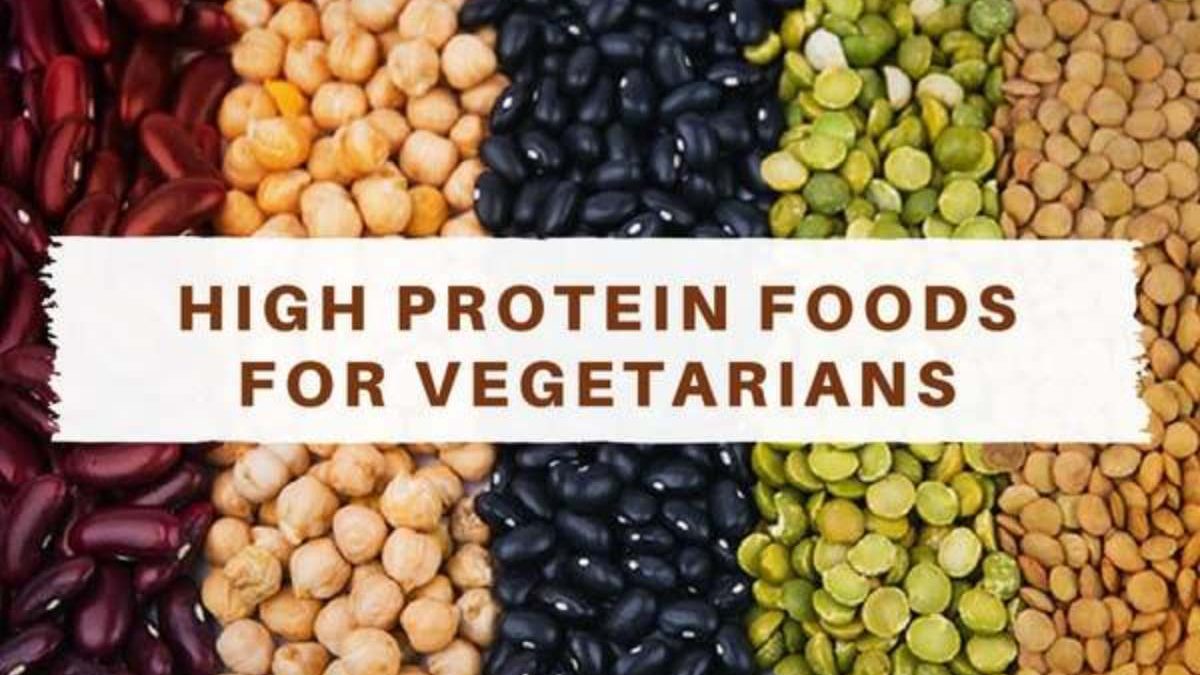Table of Contents
Introduction
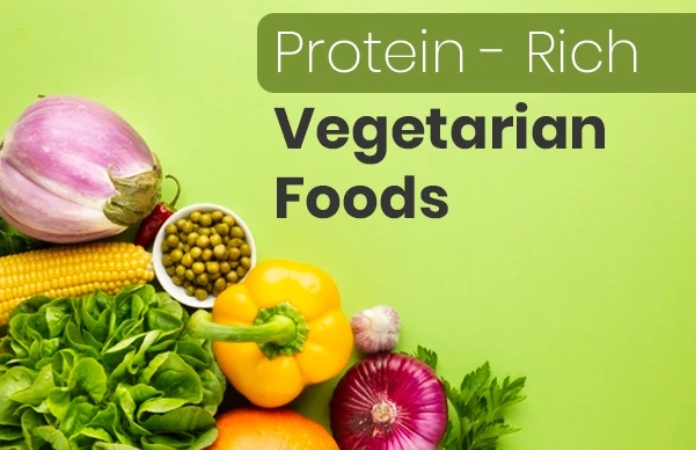
wellhealthorganic.com:protein-rich-vegetarian-indian-food-in-hindi – Protein-rich vegetarian foods can provide various benefits, such as improving muscle mass, aiding weight management, reducing the risk of chronic diseases, and supporting overall health and wellness. Plant-based protein sources include legumes, nuts, seeds, tofu, tempeh, and certain grains such as quinoa. These foods are also typically rich in fiber, vitamins, and minerals.
Categories of Protein Rich Vegetarian Food
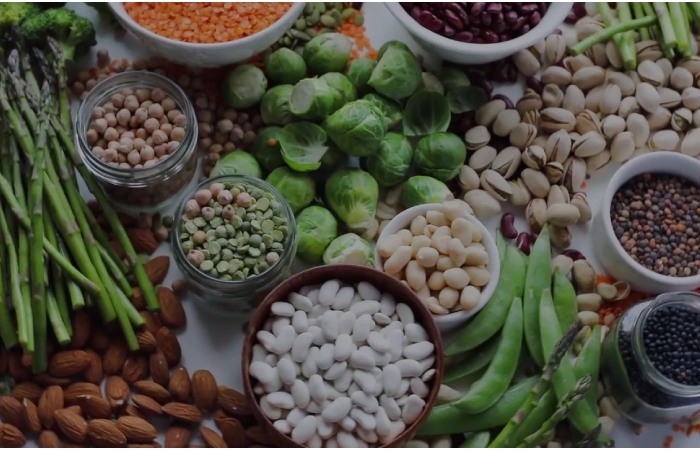
Three different protein kinds can be found in our meals.
- Additional Protein
- Complete Protein
- Incomplete Protein
Additional Protein
When two disparate foods like rice and pulses are consumed together, they combine to form complete amino acids. As they by complementing one another provides the body with all the needed amino acids at once is considered as the additional protein that is needed by our body.
In our food, there can be one of three types of proteins:
- By “complete protein,” we mean a protein containing all nine essential amino acids. Non-vegetarian foods, eggs, milk, and all dairy-based items mostly include full protein.
- Incomplete protein refers to protein lacking in one of the nine essential amino acids for proteins, which cannot be found in a single food item like peanut, almond, chickpea, pulse, etc.
Complete or Whole Protein
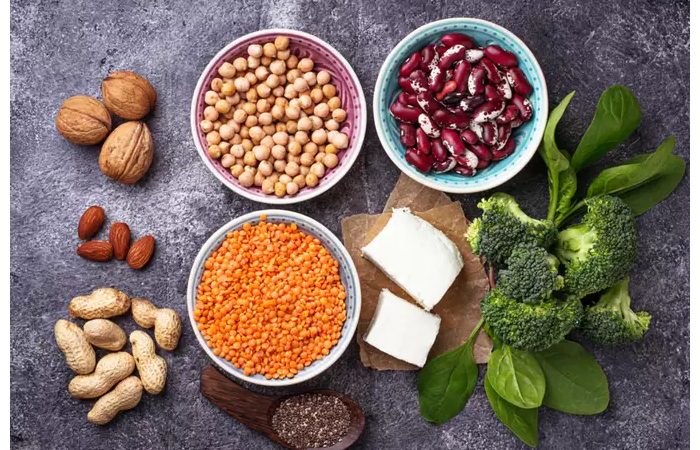
According to the Food and Drug Administration, pistachios are considered a source of complete protein since they contain “all of the essential amino acids in adequate amounts.”Based on a Protein Digestibility Study 1, it is demonstrated that roasted pistachios contain adequate quantities of all nine essential amino acids.
Incomplete Protein
Plant proteins are regarded as inadequate because they lack several necessary components. However, plant-based foods including grains, legumes (such beans and peanuts), nuts, seeds, and vegetables still have a range of protein levels.
Other sources of Protein Rich Food
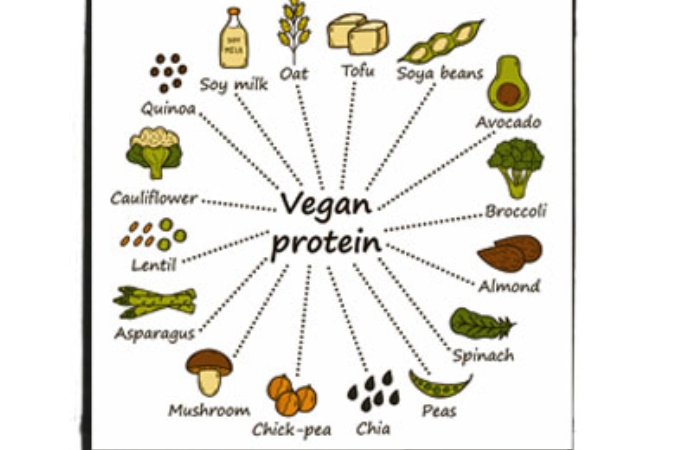
Lentils
Lentils that have peeled are very good for your skin, hair, nails, and entire body. Because peeled lentils are a good source of zinc, iron, sodium, sulfur, and protein, Masoor ki dal restores the body’s lack of blood while bringing a natural shine to the screen.
Masoor Ki dal also keeps our digestive tract functioning normally, not making us anemic. As a result, our body receives plenty of protein, other crucial nutrients, and healthy hair, nails, and skin. Eat lentils, my friends; they will maintain your body healthy and prevent protein deficiencies.
Legumes
In India, lentils, also known as daal, are a common element of a daily meal. Lentils are a fantastic vegetarian source of protein because each cup has roughly 18 g of protein.
Bean kinds such as kidney beans, black beans, chickpeas, and others regarded as being a protein powerhouse are included in the category of legumes. Each serving of chickpeas includes about 15 g of protein and many essential vitamins, minerals, and other nutrients to help you stay fit, strong, and healthy. Additionally, clinical trials have shown that eating beans frequently can lower cholesterol levels.
Other legumes, like chickpeas, are excellent in salads and low-fat, low-sodium curries.
Nuts
In a sense, nuts are superfoods. Consider adding nuts to the meal for a healthy, plant-based protein diet. Almonds and cashew nuts, both good protein sources, are always present.
There are a variety of protein-rich vegetarian Indian foods that you can include in your diet, such as:
- Lentils (dal) are a great source of protein, fiber, and iron.
- Chickpeas (Chana) are high in protein, fiber, and vitamins.
- Paneer – it is a type of cottage cheese that is high in protein and calcium.
- Tofu is a soy-based product that is high in protein and a good source of calcium.
- Quinoa – it is a gluten-free grain that is high in protein and fiber.
- Nuts and seeds are a good source of protein, healthy fats, and vitamins.
- Greek yogurt – is packed with protein and probiotics.
- Green leafy vegetables – such as spinach, kale, and broccoli, are rich in protein and other nutrients.
Incorporating these foods into your vegetarian Indian diet can help you meet your daily protein requirements.
Protein-rich vegetarian foods can provide various benefits, such as improving muscle mass, aiding weight management, reducing the risk of chronic diseases, and supporting overall health and wellness. P
lant-based protein sources include legumes, nuts, seeds, tofu, tempeh, and certain grains such as quinoa. These foods are also typically rich in fiber, vitamins, and minerals.
Oats
Oats are superfoods without a shadow of a doubt. They are rich in protein and soluble fiber, which has shown in studies to lower cholesterol and cut the risk of heart disease. Nearly 6 g of protein and 25% of your daily need for fiber may found in a tiny cup of oats. Due to their high fiber content and low glycaemic index, they also aid in controlling blood sugar levels. For a list of more foods that can help you better manage your diabetes, check out the Diabetes Food Chart.
Avoid the ready meals and masala oats as they include more salt and might not be the best way to start the day.
Sprouts and Brussels
As a green vegetable, Brussels sprouts are not only high in fiber and generally healthy, but they are also a surprisingly good source of protein. You should include this high-protein vegetarian meal in your diet even if it does not compete with meats and eggs due to its 3–4g protein concentration per 100g. This vegetable can add protein to salads, or steam or roast Brussels sprouts for lunch.
Sweet Corn
One of the most widely grown crops in the world today is corn. It is used to make corn syrup and corn flour as a food source on its own. Whether boiled, steamed, or roasted, sweet corn is a delicious snack.
Conclusion
Visit our website to find the perfect meal for anyone looking to get their daily dose of protein without sacrificing great flavor. With various vegetarian options, this delicious Indian food is packed with protein. And also help you stay energize and full throughout the day. Enjoy all the benefits of a protein-rich meal without compromising on taste.

